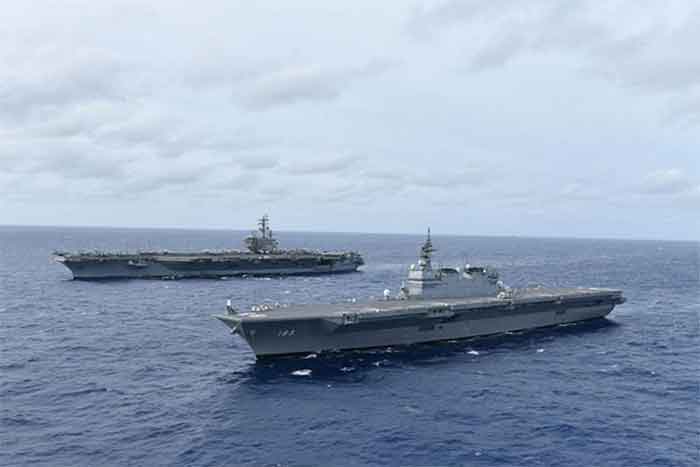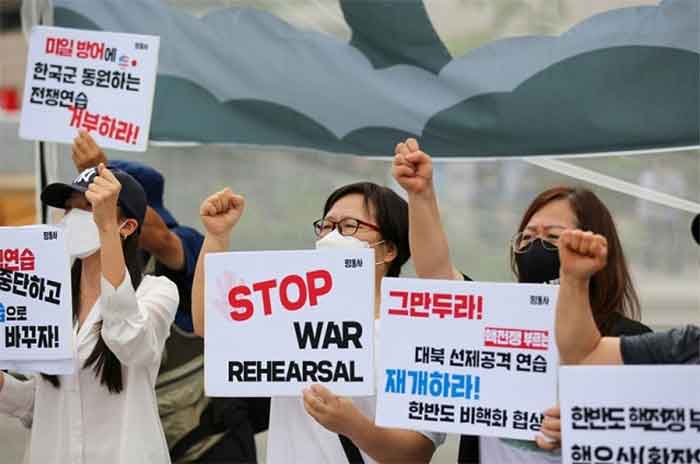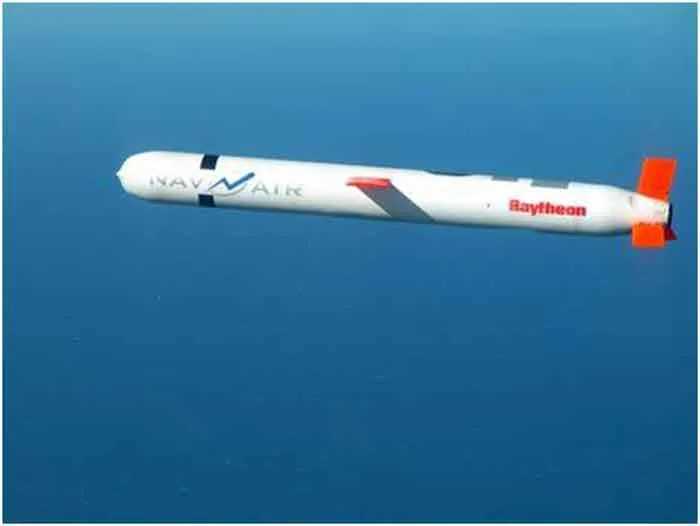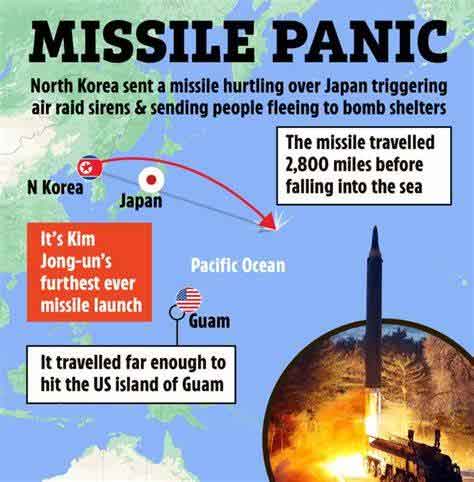
In recent months, hardly a day goes by when the Japanese media, as well as their Western counterparts, don’t comment on the increasingly dangerous security situation surrounding Japan. Needless to say, the two nations identified as responsible for the increased danger are China and North Korea. But are they really the cause?
It is certainly true that North Korea continues its development and testing of missiles of various types, many of which have the range to strike targets in Japan. It is also true that China has, of late, increased the number of ships and aircraft it sends into the vicinity of the Senkaku Islands. Thus, assigning responsibility to these two countries for the increased military danger facing Japan appears beyond question.
Yet, in the case of North Korea, one question is never raised or discussed. Namely, why would North Korea want to attack Japan? For example, would it attack as a prelude to the invasion and occupation of Japan? Or possibly to punish Japan for its former colonization of Korea?
The headquarters of US Forces Japan is located at Yokota Air Force Base outside of Tokyo. As a former Army intelligence analyst stationed there, I am able to state unequivocally that none of the preceding possibilities has ever been seriously considered. Instead, there is one reason, and one reason only, why North Korea would ever aim its missiles at Japan, i.e. to attack American military bases located in the country in the event of war.
In recalling the Korea War of 1950-53, it is clear that the US could not have fought that war without the strong logistical support provided by US bases in Japan. Japan also provided a perfect, and nearby, R&R destination for exhausted troops during that long conflict. Moreover, Japan’s postwar economic miracle began as a result of supplying a wide range of goods and services for America’s war effort, including the repair of military equipment and access to well-equipped naval ports.
All of this occurred while North Korea, lacking a substantial navy or air force, was incapable of attacking US bases in Japan. However, should the Korean War resume, this time North Korea’s missiles would make it possible to attack US support bases in Japan.
In my role as an intelligence analyst, I have participated in discussions concerning the dangers posed by North Korea’s missiles to US bases in Japan. As incongruous, or even unbelievable, as it may sound, I have heard senior intelligence analysts, up to the rank of general, welcome the possibility of missiles aimed at American military bases. Why? Because intelligence sources indicate that North Korea’s missiles are still relatively inaccurate. Thus, many if not most would miss their intended military targets, killing Japanese living near the bases instead.
The US military is acutely aware of the anti-base feelings of the Japanese people, especially in Okinawa. Thus, they believe that when Japanese living near US bases become victims of missile attacks, the anti-base attitudes of the Japanese people will disappear overnight to be replaced with gratitude for US protection coupled with a desire to avenge their dead and wounded compatriots. From then on Japan would unreservedly support the US resumption of hostilities in Korea.
As for the dispute between China and Japan, I would simply note that it was not until Japan was certain of victory in the Sino-Japanese War of 1894-95, i.e. on 14 January 1895, that the Japanese government secretly incorporated the Senkaku (Ch. Diaoyu) Islands into its territory. In addition, unlike the islands forming Okinawa Prefecture, the Senkakus lie on China’s continental shelf, a significant geographical feature in light of the provisions of the United Nations Convention on the Law of the Sea. These two facts alone indicate that Japan should be willing to enter into diplomatic negotiations with China to resolve this issue peacefully. Instead, Japan steadfastly refuses negotiations, maintaining that the Senkakus are an inherent part of its territory.
Finally, it needs to be recognized that the promotion of an increasingly dangerous security environment surrounding Japan benefits conservative political, business and military interests in both Japan and the US. In Japan, the ruling Liberal Democratic Party (LDP) is touting the alleged increased military danger in order to gain support from the Japanese people for its proposed boost in military spending to 2% of the country’s gross domestic product (GDP). This figure would double what the de facto ceiling has been for Japan since 1976 when then-Prime Minister Miki Takeo declared that Japan would never spend more than 1% of its GDP on defense.
Further, the proposed increase military spending is closely connected to enhancing public support for constitutional revision. Even since its founding in 1955, the LDP has cherished the desire to revise if not eliminate Japan’s renunciation of war as contained in Article Nine of Japan’s postwar constitution. At present, having garnered the support of two smaller political parties, the LDP’s chances of revising the constitution have never been better.
Finally, a major increase in the military budget means greater profits for both Japan and US weapons makers. This opportunity is especially attractive to Japan’s two top weapons manufacturers — Kawasaki Heavy Industries and Mitsubishi Heavy Industries. The substantial increase in military spending will allow them to develop new weapons systems not only for Japan but for sales abroad inasmuch as the ban on the export of military equipment was lifted in 2014.
As for the US, the alleged threats posed by North Korea and China, especially the latter, serve to justify the further integration of the American and Japanese militaries. We have already witnessed aircraft carriers and other warships from both nations jointly patrolling the South China Sea. The end goal of this integration is to ensure that Japan will play a key role in the US policy of containing China by surrounding it with military bases, either its own or those of allied nations.
With the increasing military buildup by all sides, especially in light of the recent increased tensions surrounding Taiwan and Taiwan Straits, one collision of opposing ships at sea, or a mishap in the air, however unintended, could spark a conflagration whose consequences would be tragic at best and unfathomable at worse. Herein lies the true military danger to Japan – and to the world.
Brian Victoria is an 18 year veteran of both the US Air Force and Army Reserves















































